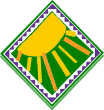E-Safety
 We are all aware of how confident young people are with using the internet. With sites such as Facebook and 'X' now part of everyday life, it is important that children learn how to stay safe online, follow rules and agreements and how to use the internet in an informed way.
We are all aware of how confident young people are with using the internet. With sites such as Facebook and 'X' now part of everyday life, it is important that children learn how to stay safe online, follow rules and agreements and how to use the internet in an informed way.
Below are a few good Internet safety sites as well as our top ten list of things to do and avoid:
1. Don't allow young children to have computers in their bedrooms until they are of an age that they can responsibly use them.
2. Facebook recommends 13 years old and upwards use their site. We do not condone children below this age having access to any social media networking sites because of safeguarding concerns.
3. Place passwords on your home computer so all the family members have their own log on. Talking to young people about the importance of keeping passwords private is also very important but as a Parent know your child's passwords.
4. Consider using filtering software in your home if young children are accessing the internet.
5. Talk to young people about what they are looking at and posting, it is amazing what you can find out in a five minute conversation. Learning about the Internet should be like learning to cross the road. You don't need to know how cars work to teach children about road safety; the internet is the same, simple common sense will keep them safe.
6. Don't forget that games consoles, iPods and most phones have internet access so the same rules should apply.
7. If you have a computer in your house take some time to learn how to view your child's internet history.
8. Set up Internet rules in your home to ensure it's safe use. Do you allow unfiltered, uncensored access to any material via the internet. This maybe happening unless clear browsing rules are set up in the home.
9. A family computer in a family room is great way to browse the internet together and a great way to spend time together as a family or just helping with homework.
10. Ensure that the young people in your home are aware of the basics. For example not agreeing to meet people they have 'met' online, sending inappropriate emails and remembering that most computer systems and Intent Service Providers track sites you are looking at so there is a trail of everything you do on the internet.
If you are worried about your son or daughter's internet activities please, please talk to someone to get advice; a teacher, police officer or a knowledgeable family friend. Please use the links below for further information.
- cse-parent-carers-leaflet 89548152
- cse-send 89548152
- Get Safe Online Leaflet 174749278
- Keeping-Under-Fives-Safe-Online 116761713
- online-safety-completed 89548152
- Parent Guide - safeguarding at Summerlea during school closures 200146444
- TALK-Parent-Resource 290430528
- YouTube safety factsheet 123065372
Parent Information - Online Safety
Follow this link for the GDST Online Safety Resources for Children, or follow the link below for further articles.

